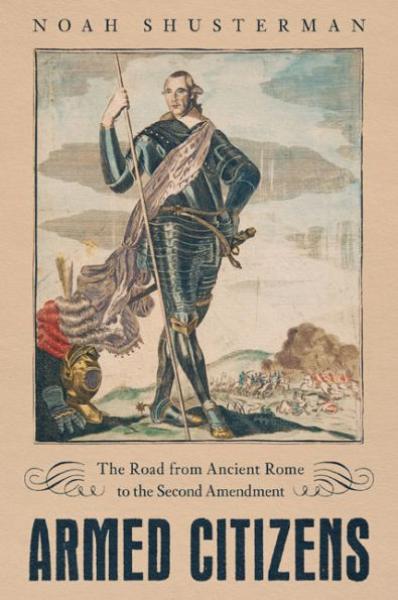Description
Although much has changed in the United States since the eighteenth century, our framework for gun laws still largely relies on the Second Amendment and the patterns that emerged in the colonial era. America has long been a heavily armed, and racially divided, society, yet few citizens understand either why militias appealed to the founding fathers or the role that militias played in North American rebellions, in which they often functioned as repressive--and racist--domestic forces.
In Armed Citizens, Noah Shusterman explains for a general reader what eighteenth-century militias were and why the authors of the Constitution believed them to be necessary to the security of a free state. Suggesting that the question was never whether there was a right to bear arms, but rather, who had the right to bear arms, Shusterman begins with the lessons that the founding generation took from the history of Ancient Rome and Machiavelli's reinterpretation of those myths during the Renaissance. He then turns to the rise of France's professional army during seventeenth-century Europe and the fear that it inspired in England. Shusterman shows how this fear led British writers to begin praising citizens' militias, at the same time that colonial America had come to rely on those militias as a means of defense and as a system to police enslaved peoples. Thus the start of the Revolution allowed Americans to portray their struggle as a war of citizens against professional soldiers, leading the authors of the Constitution to place their trust in citizen soldiers and a "well-regulated militia," an idea that persists to this day.
"This book traces the history of debates about citizen-soldiery, militias, and arms control over two thousand years, illustrating for a general readership what eighteenth-century militias were and why the founding fathers believed them to be "necessary to the security of a free state." It focuses on ten events, from antiquity to the Age of Revolutions, in which ideas about citizenship and the comparative benefits of militias versus standing/professional armies evolved together"--
What does it mean to say one believes in the Second Amendment? Noah Shusterman's deep historical dive is full of familiar scenes and surprising meanings: which is to say, it has the makings of a classic. No one has ever explained the big picture of where militias come from with such clarity and wisdom. This is a work that addresses numerous debates in an exquisitely informed and careful way, from gun rights to slavery to the relation of the Constitution to modern times. It will inspire salutes for many years to come
--David Waldstreicher, the Graduate Center, City University of New York, author of Slavery's Constitution: From Revolution to RatificationClear and convincing, Armed Citizens argues that the United States' long-held commitment to the idea of a citizen militia was not just a practical necessity given the economics of the moment and the proximity of the frontier, but a matter of republican belief: part of a tradition of republican thought that had elevated militias to a place of honor and glory well above what their lackluster military achievements would suggest. Shusterman unravels the origins of that thinking and its integration into what he calls 'the nation's guiding assumptions.' Written for a general audience, the book will appeal to anyone looking for the history that led up to the current debate on gun control.
--Alan Forrest, Emeritus Professor of History, University of York, UK, author of The Death of the French Atlantic: Trade, War, and Slavery in the Age of Revolution
Product Details
- University of Virginia Pr Brand
- Sep 1, 2020 Pub Date:
- 0813944619 ISBN-10:
- 9780813944616 ISBN-13:
- 288 Pages
- 9.13 in * 6.21 in * 0.96 in Dimensions:
- 1 lb Weight:




